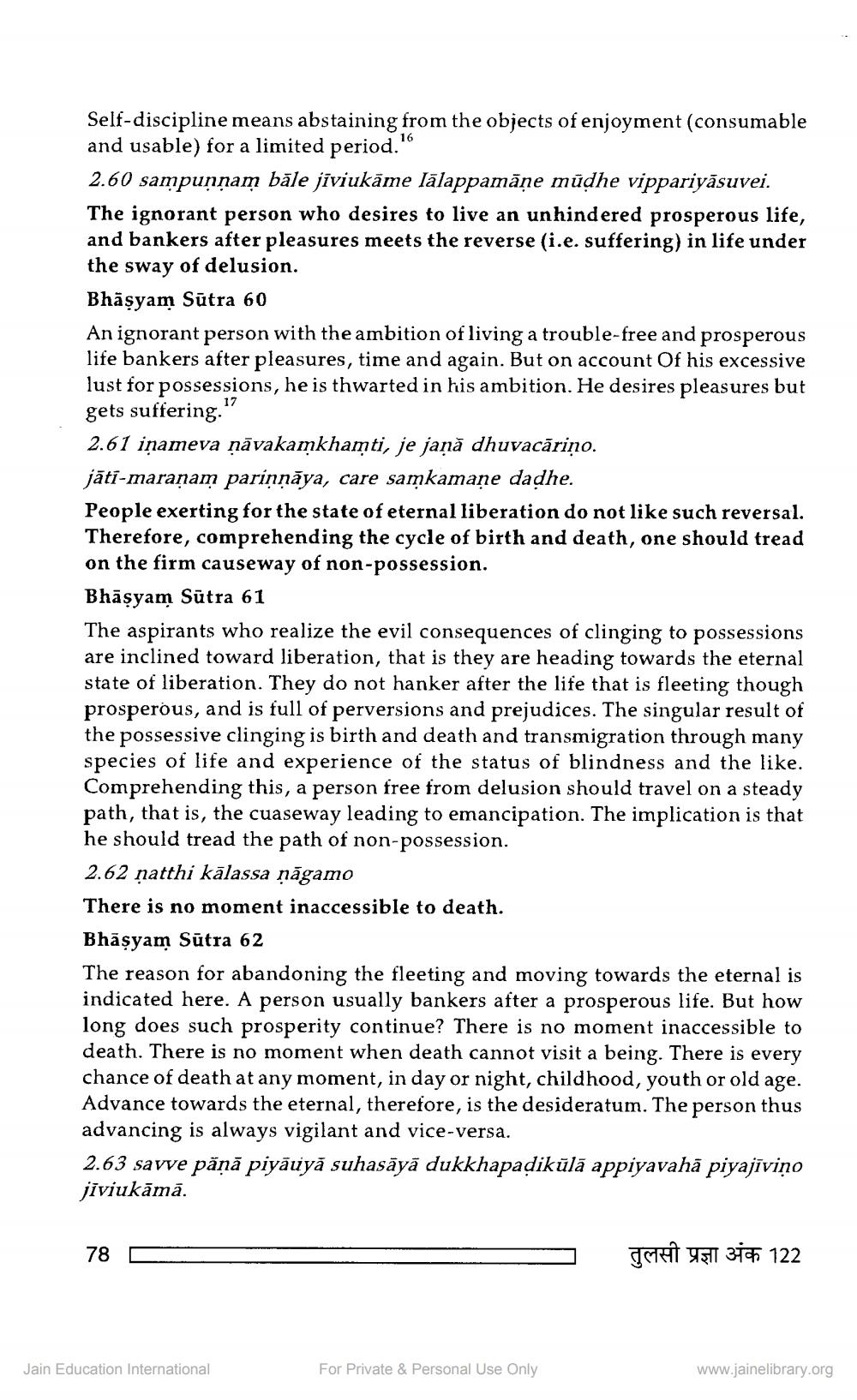________________
Self-discipline means abstaining from the objects of enjoyment (consumable and usable) for a limited period." 2.60 sampunņam bāle jīviukāme lālappamāṇe müdhe vippariyāsuvei. The ignorant person who desires to live an unhindered prosperous life, and bankers after pleasures meets the reverse (i.e. suffering) in life under the sway of delusion. Bhāoyam Sutra 60 An ignorant person with the ambition of living a trouble-free and prosperous life bankers after pleasures, time and again. But on account Of his excessive lust for possessions, he is thwarted in his ambition. He desires pleasures but gets suffering.' 2.61 iņameva nāvakamkhamti, je jaņă dhuvacāriņo. jāti-maraṇam pariņnāya, care samkamane dadhe. People exerting for the state of eternal liberation do not like such reversal. Therefore, comprehending the cycle of birth and death, one should tread on the firm causeway of non-possession. Bhāsyam Sūtra 61 The aspirants who realize the evil consequences of clinging to possessions are inclined toward liberation, that is they are heading towards the eternal state of liberation. They do not hanker after the life that is fleeting though prosperous, and is full of perversions and prejudices. The singular result of the possessive clinging is birth and death and transmigration through many species of life and experience of the status of blindness and the like. Comprehending this, a person free from delusion should travel on a steady path, that is, the cuaseway leading to emancipation. The implication is that he should tread the path of non-possession. 2.62 natthi kālassa ņāgamo There is no moment inaccessible to death. Bhāsyam Sutra 62 The reason for abandoning the fleeting and moving towards the eternal is indicated here. A person usually bankers after a prosperous life. But how long does such prosperity continue? There is no moment inaccessible to death. There is no moment when death cannot visit a being. There is every chance of death at any moment, in day or night, childhood, youth or old age. Advance towards the eternal, therefore, is the desideratum. The person thus advancing is always vigilant and vice-versa. 2.63 savve păņā piyāuyā suhasāyā dukkhapadikālā appiyavahā piyajīviņo jiviukāmā.
78
C
TERE UF11 312 122
Jain Education International
For Private & Personal Use Only
www.jainelibrary.org




